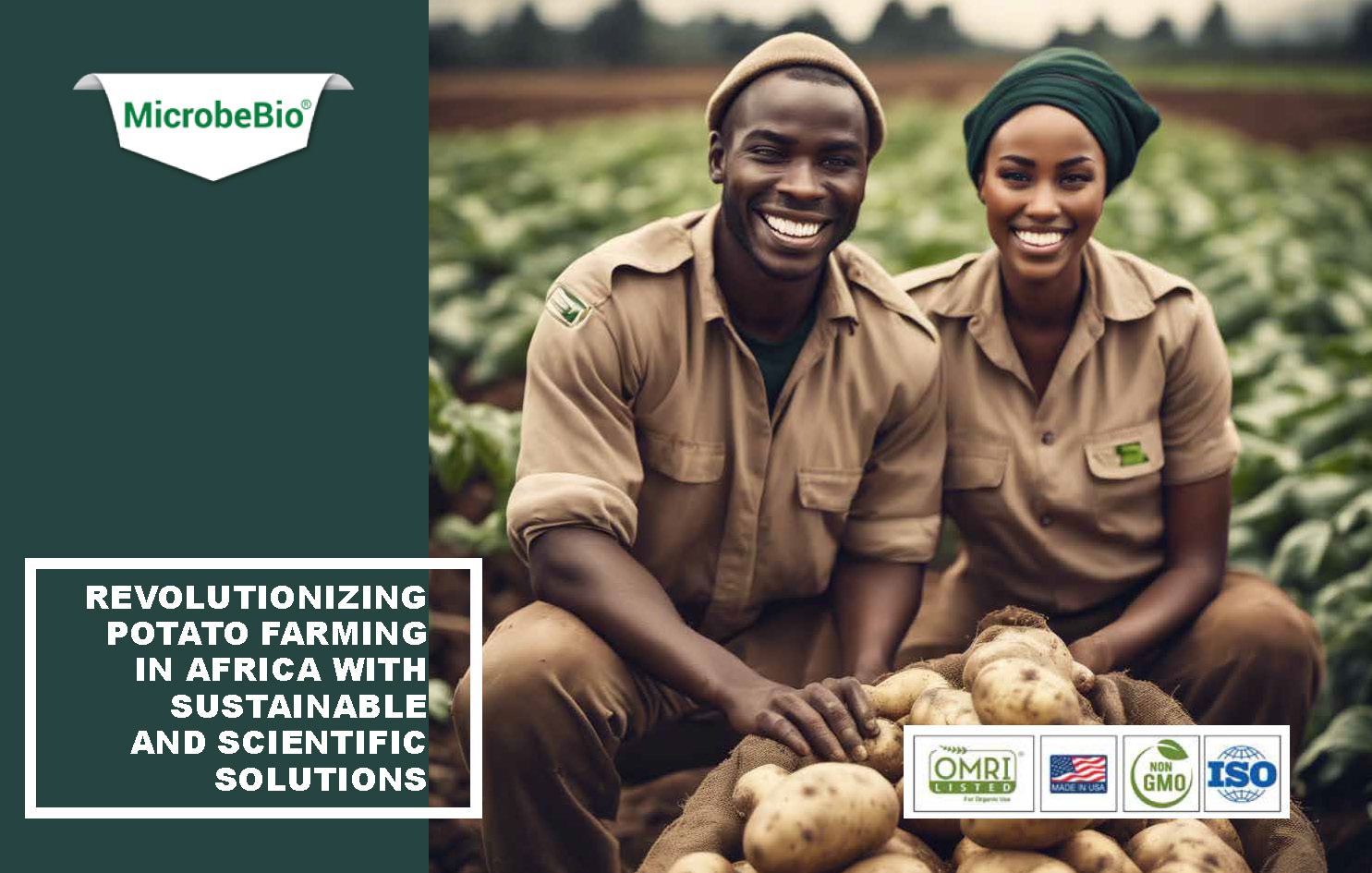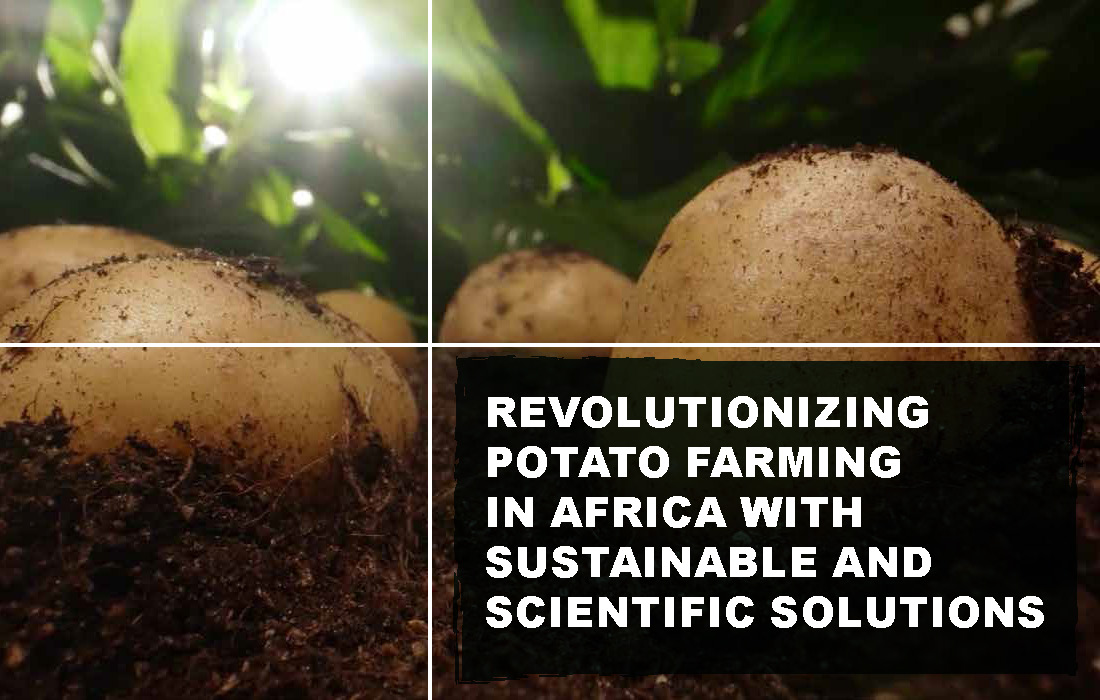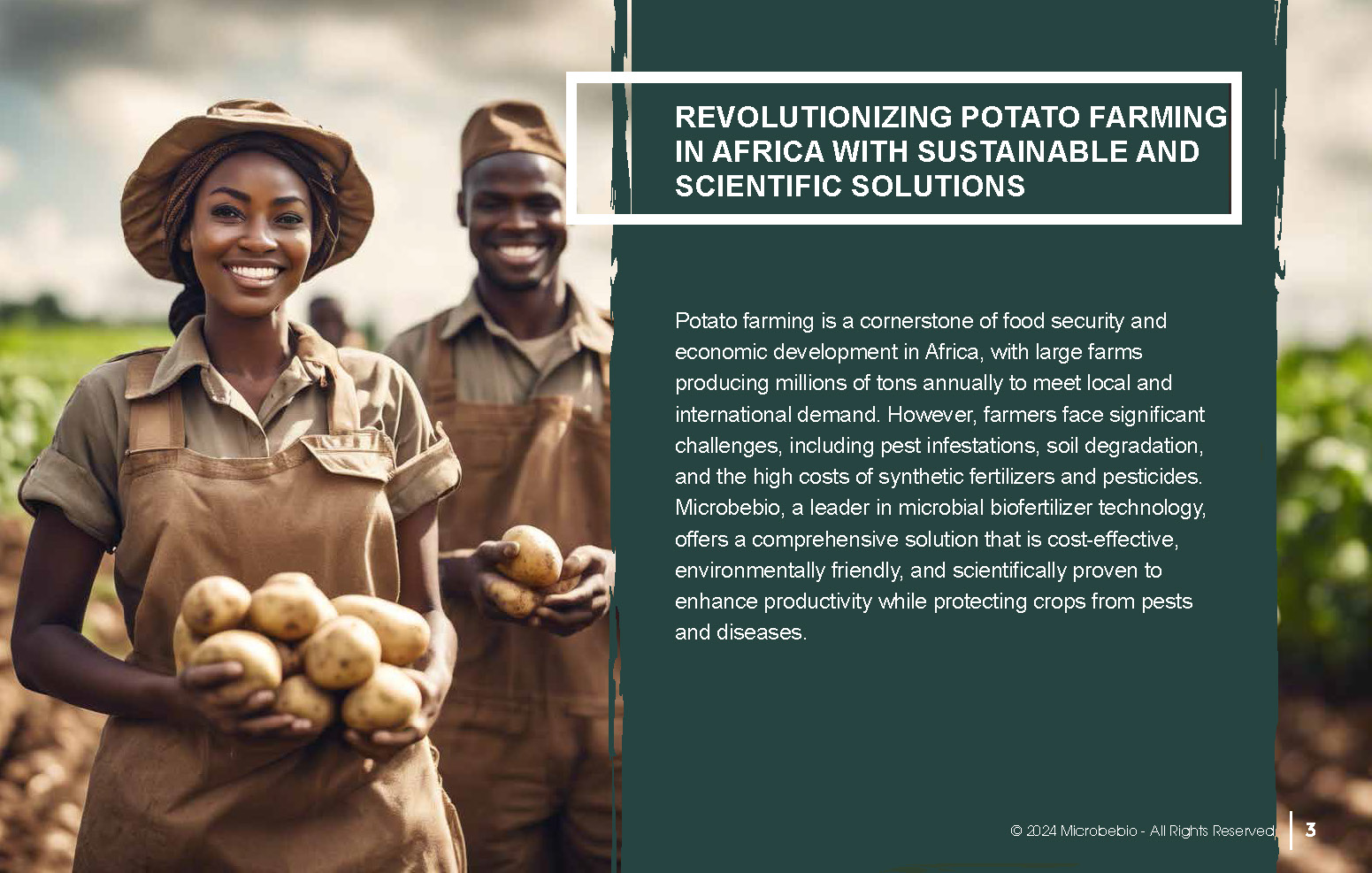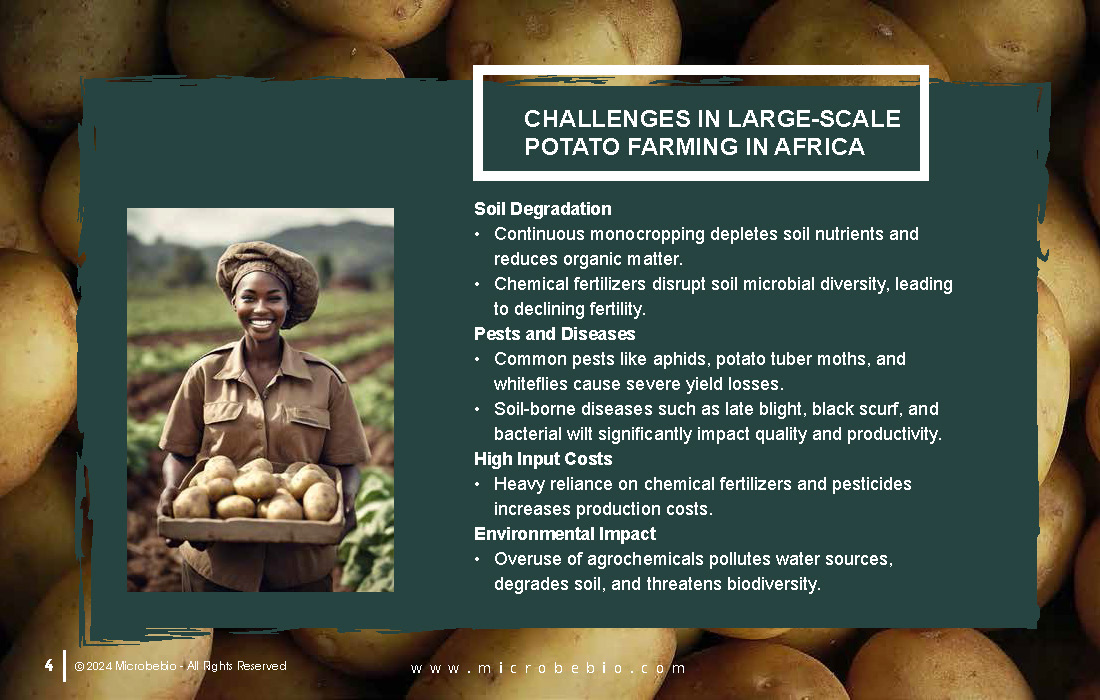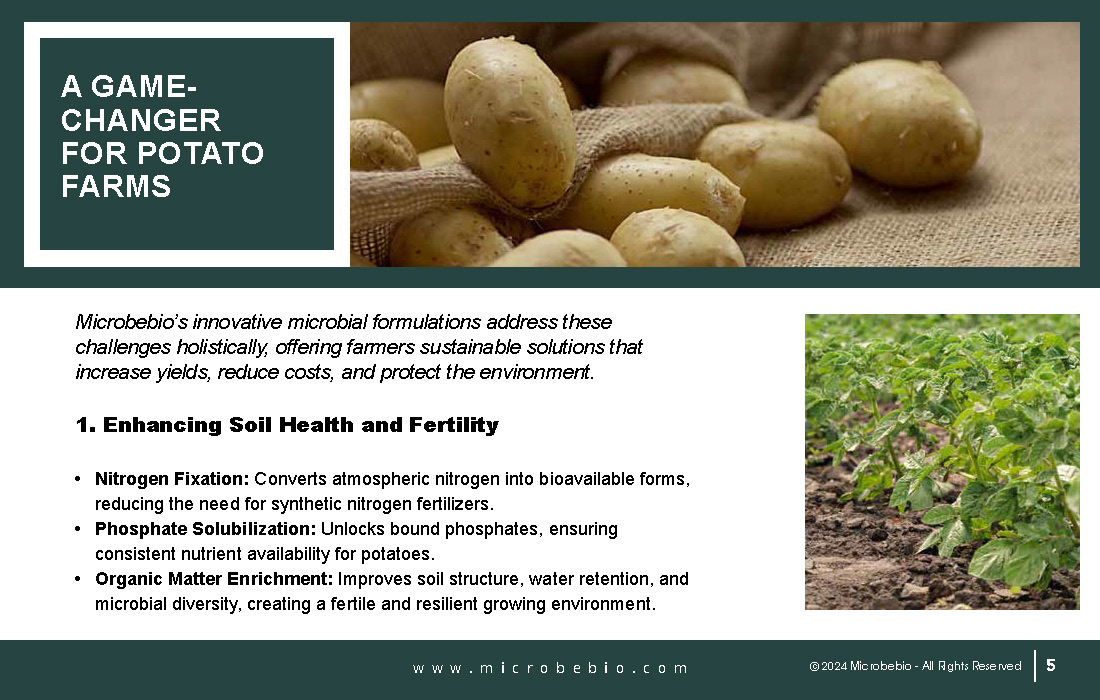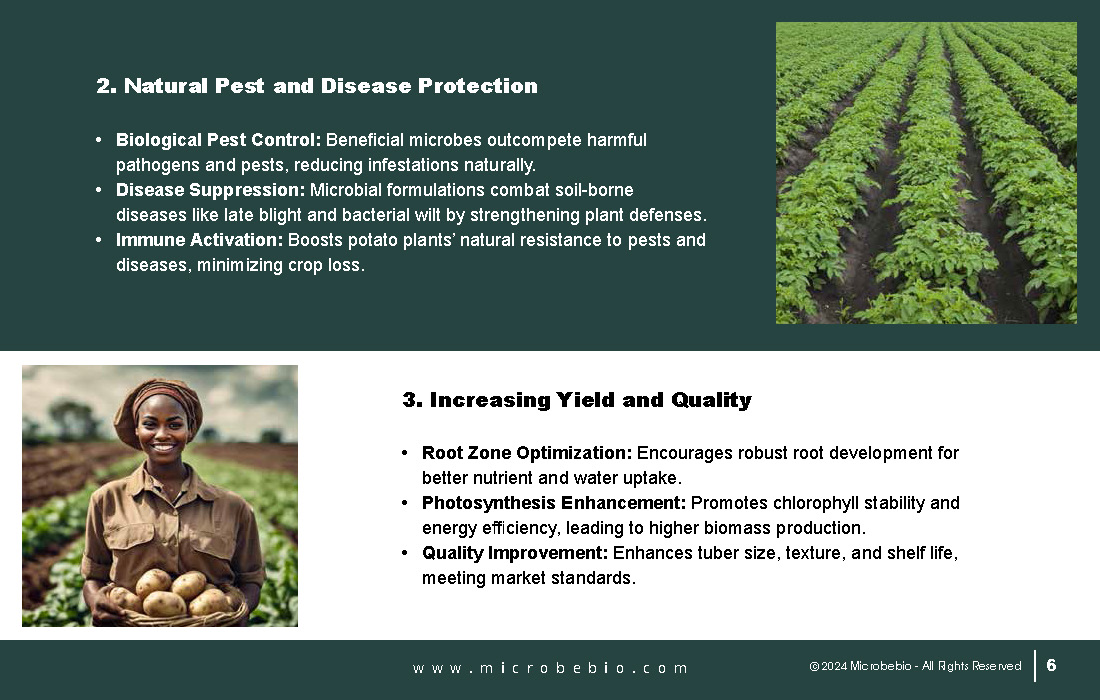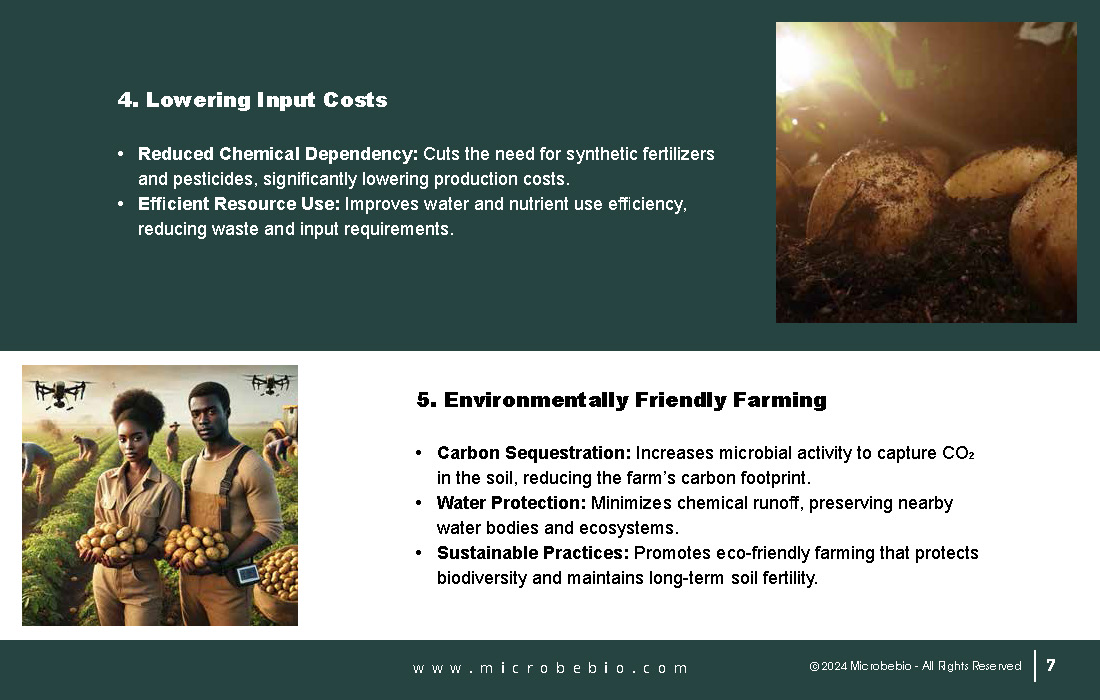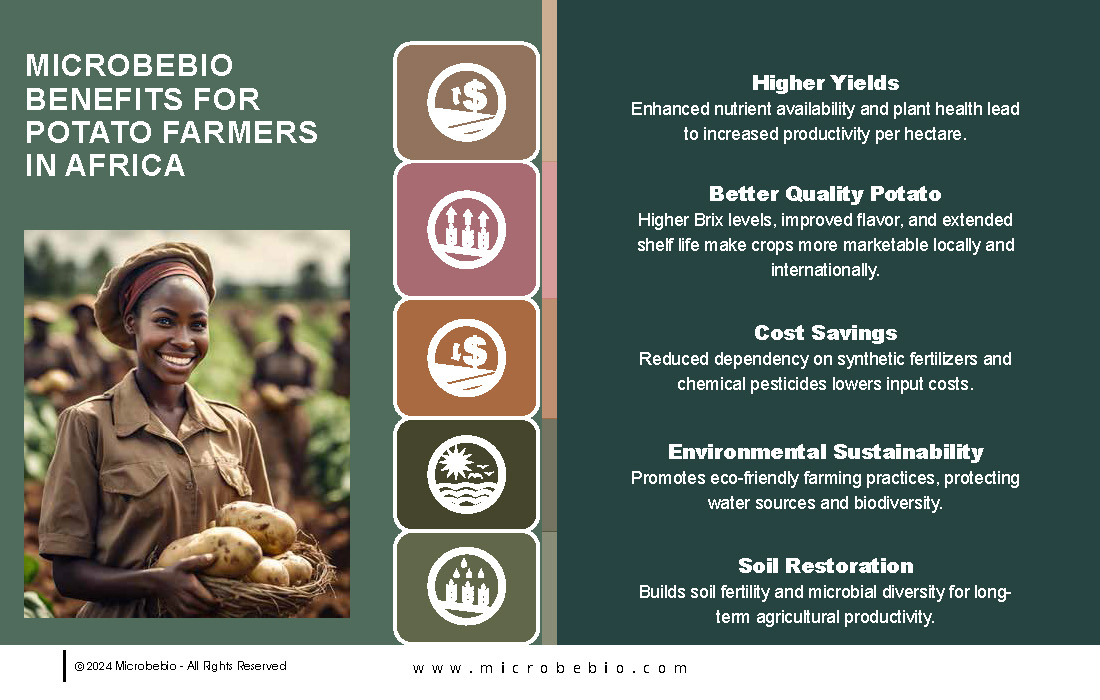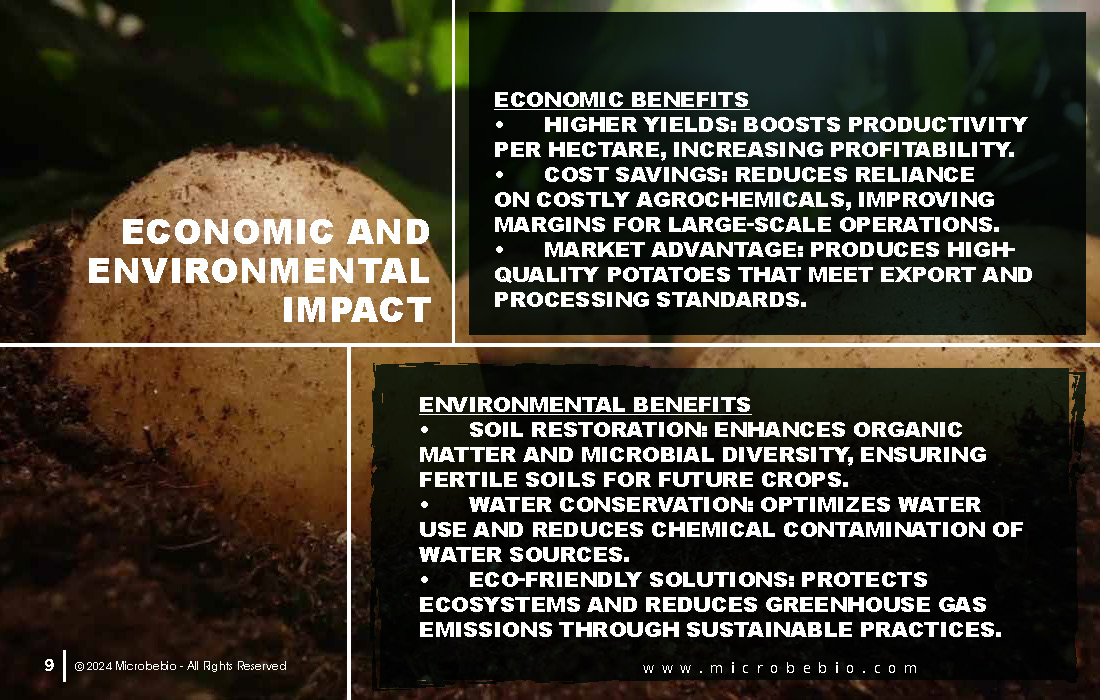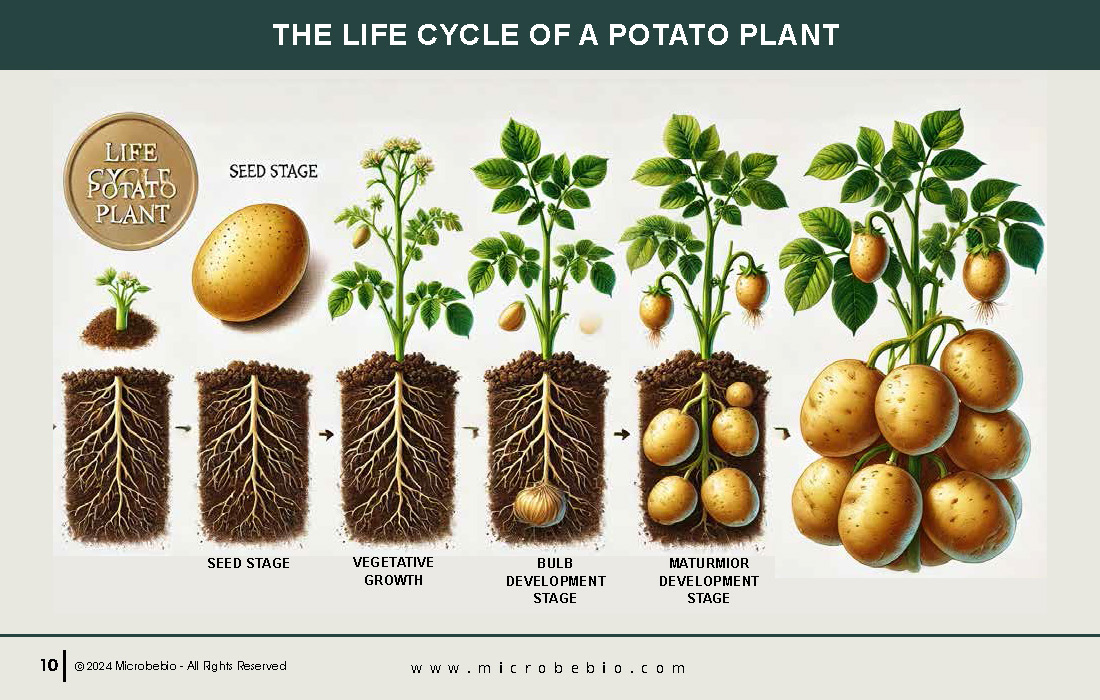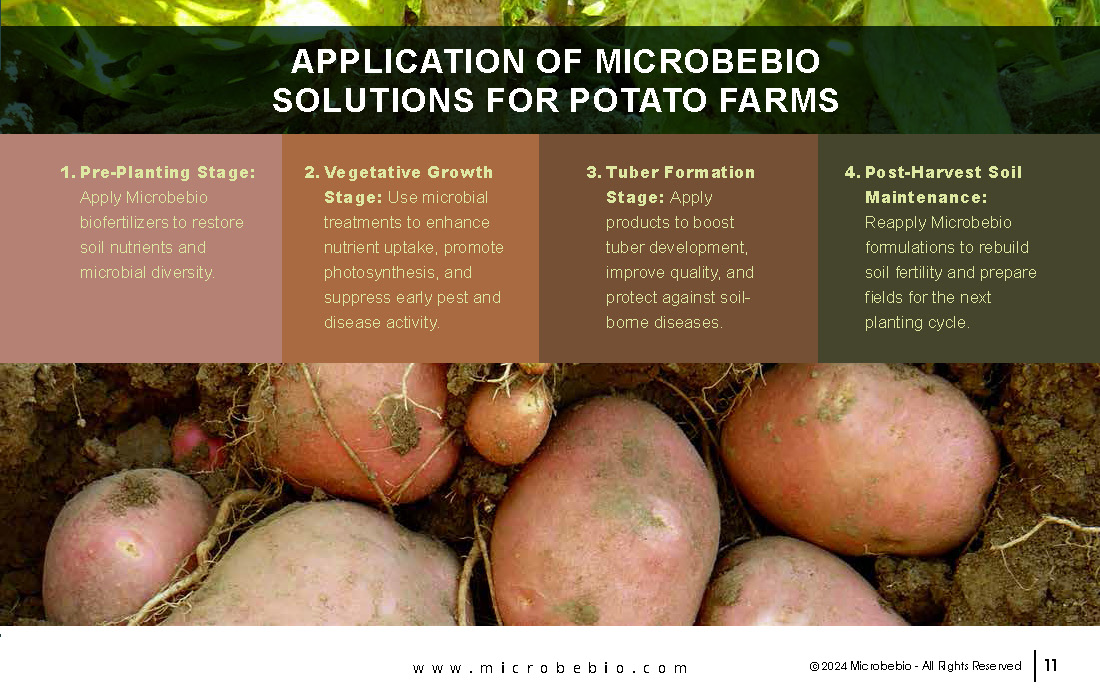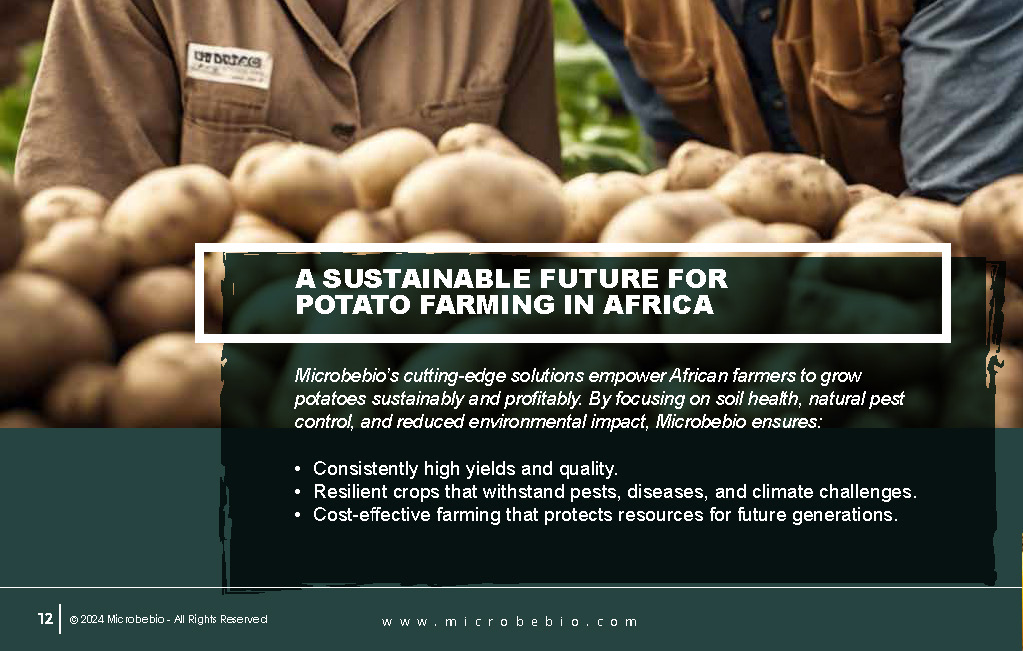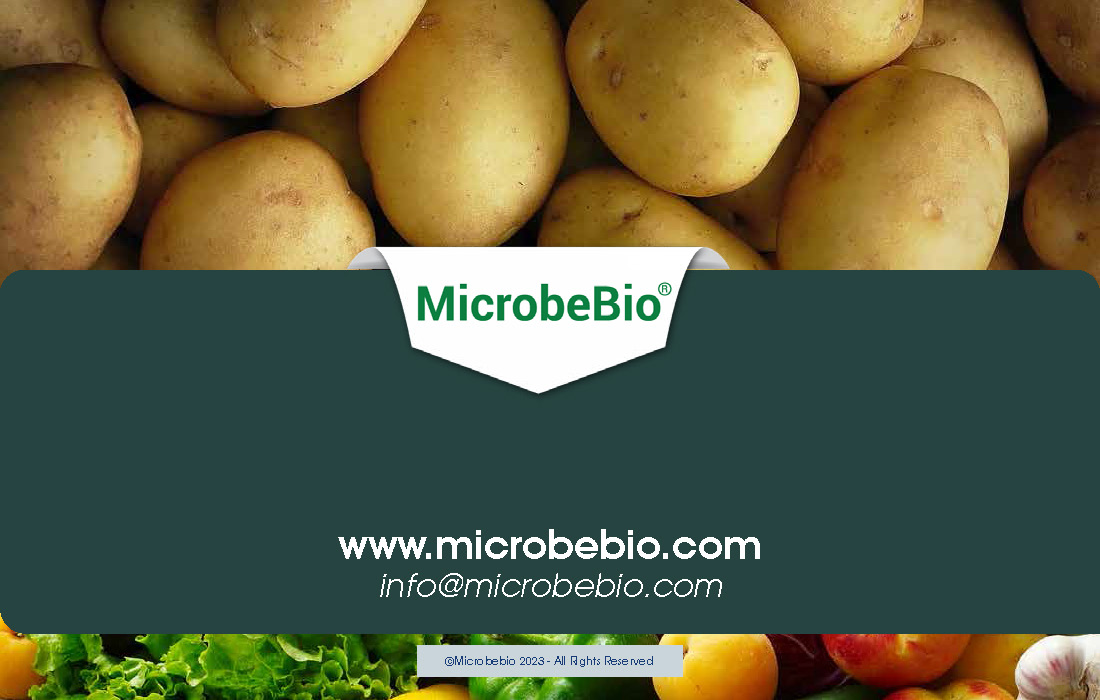Revolutionizing Potato Farming in Africa with Sustainable and Scientific Solutions
Potato farming is a cornerstone of food security and economic development in Africa, with large farms producing millions of tons annually to meet local and international demand. However, farmers face significant challenges, including pest infestations, soil degradation, and the high costs of synthetic fertilizers and pesticides. Microbebio, a leader in microbial biofertilizer technology, offers a comprehensive solution that is cost-effective, environmentally friendly, and scientifically proven to enhance productivity while protecting crops from pests and diseases.
Challenges in Large-Scale Potato Farming in Africa
- Soil Degradation
- Continuous monocropping depletes soil nutrients and reduces organic matter.
- Chemical fertilizers disrupt soil microbial diversity, leading to declining fertility.
- Pests and Diseases
- Common pests like aphids, potato tuber moths, and whiteflies cause severe yield losses.
- Soil-borne diseases such as late blight, black scurf, and bacterial wilt significantly impact quality and productivity.
- High Input Costs
- Heavy reliance on chemical fertilizers and pesticides increases production costs.
- Environmental Impact
- Overuse of agrochemicals pollutes water sources, degrades soil, and threatens biodiversity.
Microbebio: A Game-Changer for Potato Farms
Microbebio’s innovative microbial formulations address these challenges holistically, offering farmers sustainable solutions that increase yields, reduce costs, and protect the environment.
- Enhancing Soil Health and Fertility
- Nitrogen Fixation: Converts atmospheric nitrogen into bioavailable forms, reducing the need for synthetic nitrogen fertilizers.
- Phosphate Solubilization: Unlocks bound phosphates, ensuring consistent nutrient availability for potatoes.
- Organic Matter Enrichment: Improves soil structure, water retention, and microbial diversity, creating a fertile and resilient growing environment.
- Natural Pest and Disease Protection
- Biological Pest Control: Beneficial microbes outcompete harmful pathogens and pests, reducing infestations naturally.
- Disease Suppression: Microbial formulations combat soil-borne diseases like late blight and bacterial wilt by strengthening plant defenses.
- Immune Activation: Boosts potato plants’ natural resistance to pests and diseases, minimizing crop loss.
- Increasing Yield and Quality
- Root Zone Optimization: Encourages robust root development for better nutrient and water uptake.
- Photosynthesis Enhancement: Promotes chlorophyll stability and energy efficiency, leading to higher biomass production.
- Quality Improvement: Enhances tuber size, texture, and shelf life, meeting market standards.
- Lowering Input Costs
- Reduced Chemical Dependency: Cuts the need for synthetic fertilizers and pesticides, significantly lowering production costs.
- Efficient Resource Use: Improves water and nutrient use efficiency, reducing waste and input requirements.
- Environmentally Friendly Farming
- Carbon Sequestration: Increases microbial activity to capture CO₂ in the soil, reducing the farm’s carbon footprint.
- Water Protection: Minimizes chemical runoff, preserving nearby water bodies and ecosystems.
- Sustainable Practices: Promotes eco-friendly farming that protects biodiversity and maintains long-term soil fertility.
Economic and Environmental Impact
Economic Benefits
- Higher Yields: Boosts productivity per hectare, increasing profitability.
- Cost Savings: Reduces reliance on costly agrochemicals, improving margins for large-scale operations.
- Market Advantage: Produces high-quality potatoes that meet export and processing standards.
Environmental Benefits
- Soil Restoration: Enhances organic matter and microbial diversity, ensuring fertile soils for future crops.
- Water Conservation: Optimizes water use and reduces chemical contamination of water sources.
- Eco-Friendly Solutions: Protects ecosystems and reduces greenhouse gas emissions through sustainable practices.
Application of Microbebio Solutions for Potato Farms
- Pre-Planting Stage
- Apply Microbebio biofertilizers to restore soil nutrients and microbial diversity.
- Vegetative Growth Stage
- Use microbial treatments to enhance nutrient uptake, promote photosynthesis, and suppress early pest and disease activity.
- Tuber Formation Stage
- Apply products to boost tuber development, improve quality, and protect against soil-borne diseases.
- Post-Harvest Soil Maintenance
- Reapply Microbebio formulations to rebuild soil fertility and prepare fields for the next planting cycle.
Microbebio: A Sustainable Future for Potato Farming in Africa
Microbebio’s cutting-edge solutions empower African farmers to grow potatoes sustainably and profitably. By focusing on soil health, natural pest control, and reduced environmental impact, Microbebio ensures:
- Consistently high yields and quality.
- Resilient crops that withstand pests, diseases, and climate challenges.
- Cost-effective farming that protects resources for future generations.
